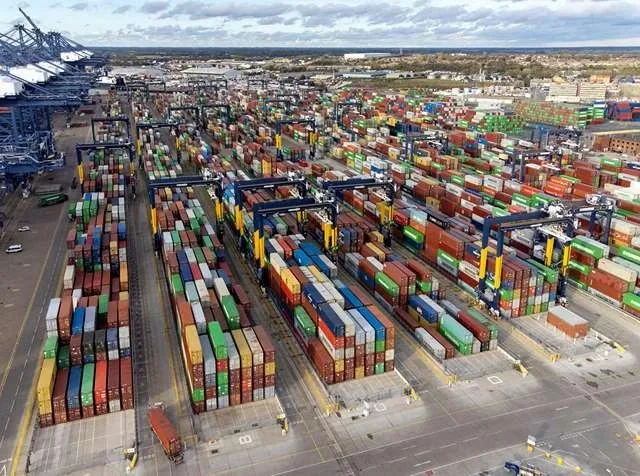UK weather: A "month's worth of rain" is expected to fall in a 24-hour period
The British Geological Survey warns that "deep floodwater is possible" and that the quantity of rain that is predicted to fall in Wales has caused landslides.


Sat, January 3, 2026

In confidential testimony sessions, a former high-ranking officer told a public inquiry that two previous leaders of all UK Special Forces concealed evidence of potential SAS war crimes.
The British Geological Survey warns that "deep floodwater is possible" and that the quantity of rain that is predicted to fall in Wales has caused landslides.

The Welshman's case has been reopened due to the perseverance of his family.

A £170 million program for those who have not yet received a diagnosis includes testing at A&Es and at home, with kits ordered through the NHS app.

In 2022, there was an attempt on Sir Salman's life at the Chautauqua Institution in New York.

With Christmas less than a month away, many are thinking about the weather over the holiday season and whether snowfall is probable.

Bonds managed the East London team from 1990 to 1994 and captained them to FA Cup victories in 1975 and 1980.

The Department of Health and Social Care reported that as of November, fifty children and their families had been brought to the UK.


The Labour MP resigned earlier this year after being accused of unlawfully obtaining a piece of land from her aunt. In absentia, she was being tried.

Due to the dire state of public finances, the prime minister and chancellor cautioned that they could have to renege on their pledges in the manifesto to not raise taxes.

Rachel Reeves was pointing out a big hole that needed to be filled in this week's package of measures, and the chancellor is under pressure after Treasury forecasters announced public finances showed a £4.2 billion surplus.
British television personality In a partnership with packaged goods giant Unilever, Jamie Laing's vegan confectionery firm Candy Kittens will purchase snack startup Graze.

Corporate manslaughter charges are currently being considered by police officials looking into the Post Office Horizon IT scandal.

The United States and the United Kingdom have reached an agreement to maintain zero tariffs on UK pharmaceutical shipments into the United States.

Zipcar, a car-sharing website, has announced that it will shut down its UK operations by the end of the year.

Greece is killing hundreds of thousands of sheep and goats because of an epidemic of a disease that spreads easily.

After being grounded for a short time because of a warning of sun radiation, thousands of Airbus jets are back in normal service.

Chancellor Rachel Reeves has indicated that people who only get money from the state pension won't have to pay taxes.


The White House has revealed that a high-ranking US Navy official directed a second wave of missile attacks on a suspected Venezuelan drug boat.

The UK government is giving itself new powers to protect British businesses from unfair dumping by exporters from other countries.This is meant to help the economy stay strong as protectionism spreads around the world.

A request to modify the name of a Dublin park that is named after a past president of Israel has been taken off the agenda for the Dublin City Council.

The record label for Jorja Smith, which won a Brit Award, says it wants a cut of the money from a song that it thinks uses an AI 'clone' of the singer's voice.

Brian Hayes, a former LBC and BBC radio host who had a big impact, died at the age of 87.

A new stage version of Paddington has gotten great reviews from reviewers after its West End premiere.

The company said in a blog post on OpenAI's website that its mission is 'to handle court cases related to mental health with care, openness, and respect'.

Simon Dodds, Chief Superintendent, said that the trial of the UK's first AI-powered police virtual assistant was a 'really exciting time'.

A recent study found that upgrading connected technology in UK businesses may increase productivity,giving each employee the equivalent of nine extra working days by 2030.
Clubs all over the UK are worried that they will have to pay the full £71 million a year to police.

In a stunning debut at the 2025 WDF World Championship, 15-year-old Mitchell Lawrie beat Japan's Tomoya Maruyama with a 3–0 victory.

Tatiana Woollaston, the best referee, couldn't officiate any games that her husband,Ben Woollaston, was in during the 2025 UK Championship.

People who watched the 2025 WDF World Championship complained about the shaky camera angles and low production quality of the official stream.

The four nations of the UK want to host the 2035 FIFA Women's World Cup.

Scott Donaldson came back from a five-frame deficit to beat ex-world No.1 at the 2025 UK Championship.

Judd Trump was about to take a very important shot when a fan suddenly sneezed loudly.
